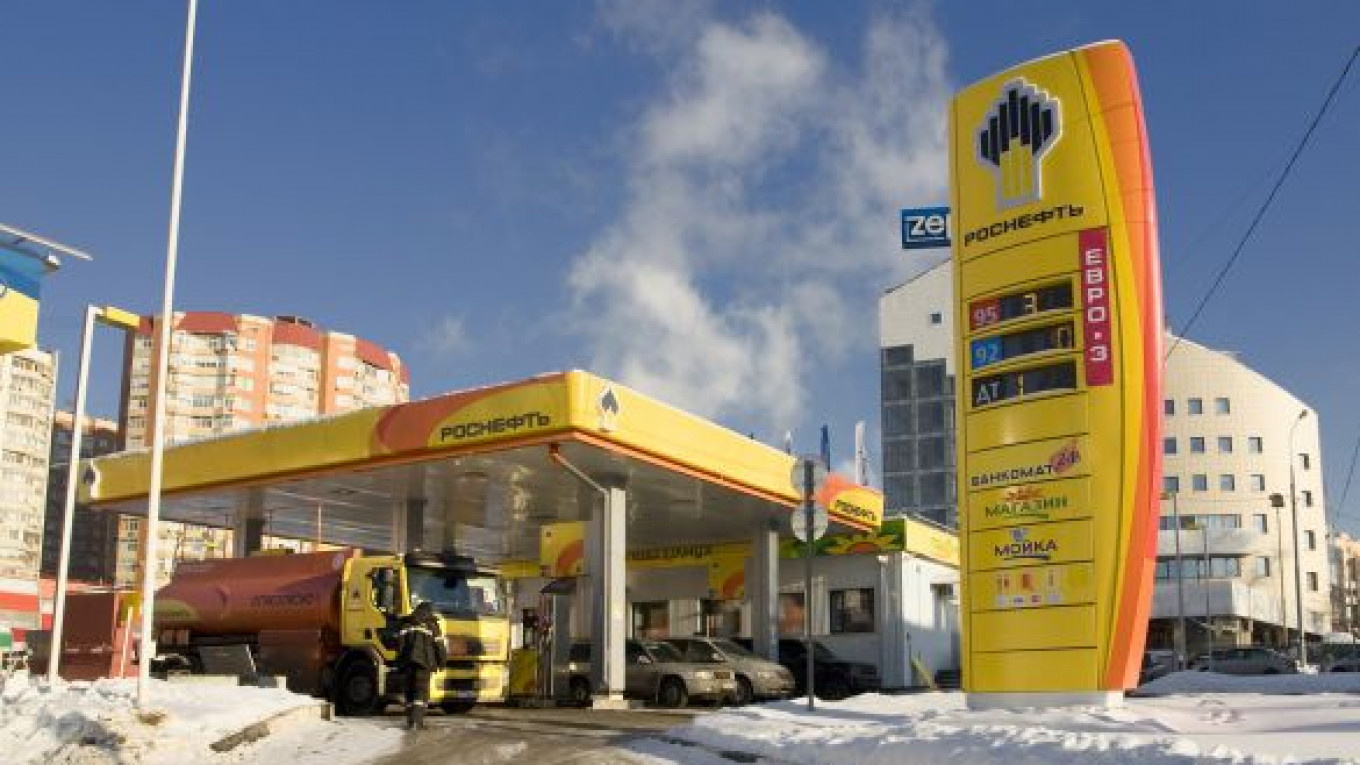Gasoline prices are climbing this month after a higher fuel tax came into effect and the ban on the dirtier Euro-2 fuel kicked in.
Despite the fiscal and regulatory pressure, the price growth — measuring about 1 percent from last month so far — is unusual for January, when demand sinks.
“It’s untraditional that the prices have risen now,” Yevgeny Arkusha, president of the Russian Fuel Union, said Wednesday.
Premium gasoline, with the octane rating of 92, sells for 28.7 rubles ($0.95) a liter in the city, according to a Monday statement by the Moscow Fuel Association.
One step down, gas with the octane rating of 80 averaged 25.6 rubles a liter.
The government raised the tax on Euro-3 gasoline 24 percent starting New Year’s Day.
The move should send the prices at the gas stations up a total of 7 percent, or about 1.7 rubles, this year, Arkusha said.
Inflation, expected to be about 7 percent this year, will push the fuel prices further up, he said.
They will, however, remain below European levels, he said, adding that the price tags at German gas stations hovered around 1.6 euros earlier this month.
On the brighter side, the shift to the higher standard of fuel is set to make the air cleaner, Deputy Energy Minister Pavel Fyodorov said.
“It’s a big step forward,” he said at a news conference Wednesday. “The amount of sulphur in the air dropped by two-thirds.”
Privately owned LUKoil led the way in raising gas prices in recent weeks, RBC Daily reported last week. State-owned Rosneft made the least changes.
The excise duty on Euro-3 gasoline now measures 9,750 rubles per metric ton.
The duty on the even cleaner Euro-4 and Euro-5 fuels will go up 6 percent on July 1, a move that is likely to trigger further growth of retail gas prices.
Under the government’s plan, Euro-3 fuels will cease to be produced by the end of next year.
Ivan Grachyov, chairman of the State Duma’s Energy Committee, said in November that the increase in the excise duty would contribute more to the fuel price spike than the move to the cleaner fuel.
Russian refineries could fall short of the demand for Euro-3 fuel this year because some of them have yet to complete upgrades of their equipment. Russia is counting on imports from Belarus of some 2 million tons of diesel and gasoline, Fyodorov said, although the expected shortage is about half that amount.
As of the end of November, 85 percent of gasoline produced in Russia met either Euro-3 or the higher standards.
Mayor Sergei Sobyanin said this past fall that Gazprom Neft’s refinery in the city and the other refineries that supplied Moscow would mostly sell Euro-4 fuel here starting this month.
Contact the author at [email protected]
Related articles:
A Message from The Moscow Times:
Dear readers,
We are facing unprecedented challenges. Russia's Prosecutor General's Office has designated The Moscow Times as an "undesirable" organization, criminalizing our work and putting our staff at risk of prosecution. This follows our earlier unjust labeling as a "foreign agent."
These actions are direct attempts to silence independent journalism in Russia. The authorities claim our work "discredits the decisions of the Russian leadership." We see things differently: we strive to provide accurate, unbiased reporting on Russia.
We, the journalists of The Moscow Times, refuse to be silenced. But to continue our work, we need your help.
Your support, no matter how small, makes a world of difference. If you can, please support us monthly starting from just $2. It's quick to set up, and every contribution makes a significant impact.
By supporting The Moscow Times, you're defending open, independent journalism in the face of repression. Thank you for standing with us.
Remind me later.






